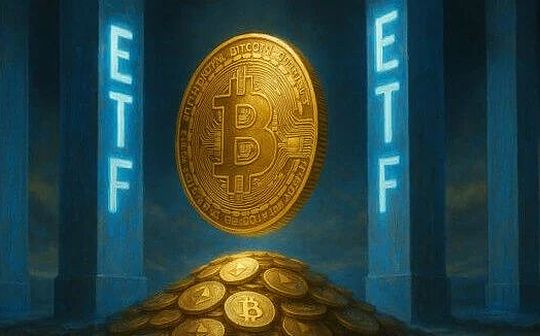
Author: taxdao
1. Introduction
On November 16, 2024, the French Senate proposed a amendment in the budget negotiation of 2025 (Amendment I-128), which aims to rename the “Real Estate Fortune Tax” to “Non-Product Fortune Tax”, whichAnd expand the scope of taxation to a variety of assets including digital assets to tax such “non -productive capital gains”.The types of income covered by this tax regulations specifically refer to the value -added parts that only exist on the book, such as the value -added generated by cryptocurrencies or other assets due to rising market prices.EssenceIn short, when the market value of assets rose and the holder has not yet converted it to cash through the sale, the unrealized value -added is considered as non -productive capital gains and incorporated into the scope of taxation.This article will discuss its potential impact on the cryptocurrency market on the basis of analyzing the current French tax law system and combined with the latest proposal content.
2. Amendment to the background
2.1 Overview of the current French tax system
2.1.1 French real estate capital gains tax and real estate wealth tax
In France, according to the current French Tax Code 150U, the capital gains realized by real estate transfers need to pay capital income tax (IMPôT Sur La Plus-Value, CGT).EssenceThe longer the holding time, the more tax reductions you enjoy, and the tax exemption for more than 22 years.If real estate is the main place of residence, capital is tax -free.In addition, social taxes need to be paid. The tax rate and reduction regulations are similar to that of CGT, but the period of reduction is longer.The total tax rate decreases with the increase of holdings, reflecting the principle of fairness of taxation.
Impôt Sonia La Fortune Immobilière (IFI) is an annual tax collection for net value of real estate assets, which is suitable for individuals who exceed a specific net wealth threshold.Starting from Article 954 of the Tax Code, France stipulates the standards and scope of the real estate wealth tax in detail.The tax replaces the previous unity and wealth tax (ISF), which is taxed for French residents’ real estate assets in the world, but illegal residents only need to pay taxes on France.The IFI tax rate ranges from 0.5%to 1.5%, which aims to curb real estate speculation and promote market stability.
2.1.2 Cryptocurrency taxation
France has precedent in terms of cryptocurrency taxation.As early as 2019, the country launched the rules of taxation on digital assets in accordance with the two clauses of the 150th VH of the General Tax Law.If the taxpayer lives in France, it will need to pay taxes by selling Bitcoin or any other cryptocurrencies by selling Bitcoin or any other cryptocurrencies.In 2023, France added a progressive tax system.Starting from the 2023 tax year (report of 2024), taxpayers with a minimum tax (that is, the annual income of less than 27,478 euros) will enjoy a certain tax discount, and its maximum tax rate will be reduced to 28.2%.30%.
At present, in France, the capital of the sale of cryptocurrencies may be levied at a unified tax rate of 30%.In addition, in France, the transaction of cryptocurrency conversion cryptocurrencies is not considered taxable. This tax policy can encourage investors to diversify the portfolio of investment and avoid the tax burden on immediately due to frequent transactions.
2.2 Crypto assets have not achieved income or will be taxed
At present, French investors only need to perform taxpayers only when they sell digital assets and make profits.According to the amendment, even if there is no sales profit, any increase in the value of encrypted assets will be taxed.
This proposed new regulations are at the time of discussions and practice on the supervision and tax issues of digital assets around the world.At present, governments are actively exploring the effective ways to incorporate cryptocurrencies into their tax system and adopt different tax strategies based on their national conditions.Some countries tend to treat cryptocurrencies as similar assets similar to traditional investment, while others have formulated special tax rules for these emerging assets.For example, the Czech Republic has agreed with the parliament to exempt Capital and benefit taxes on Bitcoin, which holds more than 3 years; the Danish Tax Law Commission has suggestedSince the birth of cryptocurrencies, all the cryptocurrencies purchased since the birth of cryptocurrencies, and allowed cryptocurrencies to invest in loss of investment; and in the United States, only when they sell cryptocurrencies and obtain profits, they need to pay taxes.Increase to 42%to increase government revenue; Kenya announced that in the first half of 2023, it levied more than $ 77 million in taxes from 384 cryptocurrencies dealers, and plans to strengthen tax systems and technology applications to improve taxation efficiency …In this context, the French Senate recently advocated that the income tax for cryptocurrencies is not a trend of income, but an inevitable move to construct and improve the global trend of cryptocurrencies taxation and regulatory systems.
3. The core content of the amendment
3.1 Refining and extension of the acquisition object
The amendment will be renamed the “non -productive wealth tax” that originally renamed the wealth tax for real estate, and expanded the taxpayer from a single non -dynamic property to the unprepared real estate, liquidity assets, financial assets, formal real estate, intellectual property rights, and numbers.Assets and other fields.This rename and expansion measures aims to expand the tax base of the wealth tax (IFI) to make the tax system more in line with the needs of French economic development.In addition to the previous real estate as the only basis for taxation, the tax target of French wealth tax will also include digital assets (such as cryptocurrencies) and mobile assets in bank accounts, provided that they are not for economic activities.In addition, the amendment also provides tax benefits for economic productive investment, such as the construction of a leased apartment or supporting small and medium -sized enterprises (SMES).
3.2 Increase of digital assets
It is particularly noteworthy that the amendment has clearly incorporated digital assets into the scope of taxation and uses Bitcoin as an example of digital assets.In the addition of the addition of Article 3 of the amendment, the scope of taxation of digital assets was included in the taxation of non -productive wealth taxes.Specifically, in the revision of the “I. – A. – General Tax Law First Part III Chapter 2 and Two”, Article 965 is clearly stipulated as follows: “The tax base of non -productive wealth taxes is reasonableArticle 964 The persons and their minor children (when they legally manage the property of these children) directly or indirectly, and one of the following categories, the net value composition of January 1 of that year: … According to this thisThe amendment, the following will be specially included in the reform of non -productive wealth taxes after the reform: unprepared real estate for economic activities … Moral funds and similar financial investment … There are targeted real estate … Digital assets (such as Bitcoin) …”This means that from the legal provisions, digital assets have been clearly explicit as part of non -productive wealth and need to pay the corresponding wealth tax.At this time, cryptocurrencies such as Bitcoin will be like real estate, which will be taxed at the time of transfer, and tax on the net market value on the same day on January 1 on January 1.Of course, the value of the net market here is the value after deducting the relevant cost of the property.
In terms of effective time, the amendment requires the use of non -productive wealth taxes to replace real estate wealth taxes from 2025.This means that once the amendment is effective, starting from 2025, digital assets will be officially included in the taxation of non -productive wealth taxes.It should be emphasized that although digital assets are included in the taxation of non -productive wealth taxes, the amendments have not specified the tax threshold of digital assets.However, from the overall content of the amendment, the increase in taxation threshold is an important reform direction, so as to avoid taxable families that cannot be classified as wealthy but only due to inflation.In addition, the amendment did not mention the tax exemption of digital assets.However, considering the purpose of the amendment is to encourage productive investment and give tax reduction and exemption to some specific productive investment activities. Whether the French government will give tax exemption or tax reduction benefits to certain types of digital asset investment in the future, it is worth it to be worthy of tax -free or tax reduction benefits.Further attention and discussion.
4. Disputes around not realized capital gains and taxes
In fact, there have been controversy on whether to respond to non -capital benefits of capital benefits. The core question is: whether the unrealized, potential income ratio is not fair or effective for taxation.
4.1 The advantage of not achieving capital benefits and taxes
Some opinions believe that one of the advantages of income taxation is that it can increase tax revenue.For example, in the United States, the estimation of the Federal Reserve Commission shows that the richest 1%of Americans hold more than 50%of all unrealized capital gains.The research team of the University of Pennsylvania further estimates that taxes on these benefits may be able to raise taxes of up to $ 500 billion in 10 years.In addition, there are still three major benefits to tax levy without realizing income.The first is to solve the problem of high net worth individuals who hold tax avoidance through assets.Many high net worth individuals are locked in taxpayers because of most of their wealth in stocks, bonds, real estate and other investment assets.Some of them have used a common tax avoidance strategy, that is, “buy, borrow, and die”. They invest in value -added assets and hold them for life.Give the heir.Even general investors can delay tax taxes through without selling assets.This strategy allows them to accumulate a lot of wealth without paying taxes.The second is to alleviate the issue of wealth inequality, and promote social fairness through taxation re -distribution.The third is to improve economic efficiency and encourage investors to invest funds into more productive areas.
4.2 The disadvantage of not achieving capital gains tax
The disadvantages of not achieving capital gains tax are mainly reflected in four aspects.The first is the challenge of asset valuation accuracy, especially assets with poor non -liquidity and poor liquidity. The market price is not easy to obtain or fluctuate frequently, resulting in complex valuation, time and expensive.The second is that it may cause liquidity. For individuals who are mainly bound to non -cash assets in wealth, taxation may cause them to face cash flow problems and have to sell assets or bonds to perform tax responsibilities.Third, the concerns of double tax re -taxation. During the holding period, the same assets were taxed due to value -added, and the taxation of capital benefits was once again taxed at the time of sale, which may inhibit long -term investment.Fourth, potential negative economic impacts, including suppressing the non -current asset market, increasing the risk and dislike of investors, reducing investment in high growth potential and volatility assets, and countries that may cause capital outflow to more preferential taxes, thereby weakening national competitionforce.In short, the implementation of unrealized capital benefits and taxes is facing challenges such as difficulty in valuation, liquidity issues, dual taxation risks and potential economic negative impacts.
5. The impact on cryptocurrency holders and markets
5.1 The impact on cryptocurrency holders
Many French cryptocurrency investors are concerned about the fairness of the amendment.Unlike real estate or stocks, cryptocurrencies lack consistent valuation indicators and often experience high volatility.This policy may promote investors to purchase stablecoins or use overseas exchanges to avoid heavy tax burdens.
5.1.1 Increase the tax burden
Cryptocurrency holders will face double tax pressure.On the one hand, they need to pay taxes on the sale of cryptocurrencies; on the other hand, they need to pay wealth taxes based on the net market value of cryptocurrencies each year.This will significantly increase the actual cost of investor holding and transaction cryptocurrencies.
5.1.2 Intervention in investment behavior
The increase in tax burden may promote the adjustment of cryptocurrency holders to adjust its investment strategy.Some long -term holders may choose to sell cryptocurrencies in advance to avoid future tax pressure; short -term investors may be more cautious to consider their investment strategies to balance their income and tax costs.Although people who support the income tax of capital have believed that the book profit has provided the taxpayer with economic advantages, so it can be taxed “fairly”.The price increase may be negative within a few days or even a few hours.Under such circumstances, unrealized capital gains tax may force investors to clear the assets at a disadvantage of time and cause losses in disguise.
5.2 The impact on the market
The increase in tax burden may reduce the market liquidity of cryptocurrencies such as cryptocurrencies.This is particularly worrying to investors who have not realized income taxes that may not sell assets but faced taxpayers, and in the cryptocurrency market where the value of assets may fluctuate significantly. This is particularly worrying.Investors have a certain cash flow pressure before the tax period. If there is not enough cash to pay taxes, then investors have to choose to sell cryptocurrencies, which will not only make investors’ financial stress, but also cause fluctuations in the market price of the cryptocurrencies market.EssenceAt the same time, some investors may reduce the frequency of transactions due to excessive tax burden or choose to withdraw from the market to cause overall liquidity of the market.
5.3 Global Impact
From a global perspective, France, as one of the EU’s important member, often has a demonstration effect on the cryptocurrency market throughout Europe and the world.France’s adjustment in cryptocurrency tax policies may trigger other countries to re -examine its tax framework.For example, the European Union is currently formulating a unified crypto asset market (MICA) regulations. The MICA framework is the consensus of EU countries for tax policies. This amendment of France may promote the overall consideration of other EU countries and even the European Union to consider similar tax policies as France.France’s approach may also affect other major economies such as the United States and Japan, which may change the tax environment of global cryptocurrency investors.
6. Conclusion
With the maturity of the cryptocurrency market, how to carry out effective supervision and reasonable taxation of it has become a common challenge facing the governments of various countries.Although this amendment is still in the preliminary stage and has not yet officially became a legal provision, the tax logic and policy orientation behind it have been sufficient to attract the deep attention of cryptocurrency holders and industry practitioners.Globally, regardless of whether the country establishes a separate capital income tax, capital gains are regarded as an important target of income tax.From the perspective of the practice of tax laws in various countries, in order to attract financial capital, some countries and regions (such as Singapore and Hong Kong, China) set the capital profit tax rate to 0%; in countries with a non -zero tax rate, they are usually only achieved in capital gains.”At that time, the book income was transformed into actual income, and tax levy was levied.For the deprivation of cryptocurrencies, most countries also follow this practice. Even the academic and policy researchers of cryptocurrencies, few people have proposed taxes on the book income of cryptocurrencies.Therefore, this tax amendment in France is particularly “prominent” and unique.
Although this amendment seems different, we can still interpret the two dimensions of its supporting measures and policy goals.On the one hand, the income tax levy of cryptocurrencies does not exist in isolation, but complement the mechanism of the profit and loss of cryptocurrencies. For example, the amendment is to require the “net income” to levy the non -capital benefit tax.On the other hand, this tax law amendment is consistent with France’s policy trends in the strengthening of cryptocurrency supervision in recent years.This refers to the decentralization characteristics of cryptocurrencies that bring unprecedented challenges to tax collection and management, and taxes for unrealized income can simplify the tax collection and management of cryptocurrencies to a certain extent, and become the government to strengthen the intervention of cryptocurrencies to intervention in cryptocurrencies.Important means of supervision.
Although the amendment may bring certain tax burden pressure on cryptocurrency holders, it is of great significance to improving the tax system and promoting the healthy development of the market, highlighting the phenomenon of re -consideration of cryptocurrency taxation methods.In the future, with the continuous strengthening of cryptocurrency tax supervision worldwide, we look forward to seeing a more standardized and transparent cryptocurrency market.








